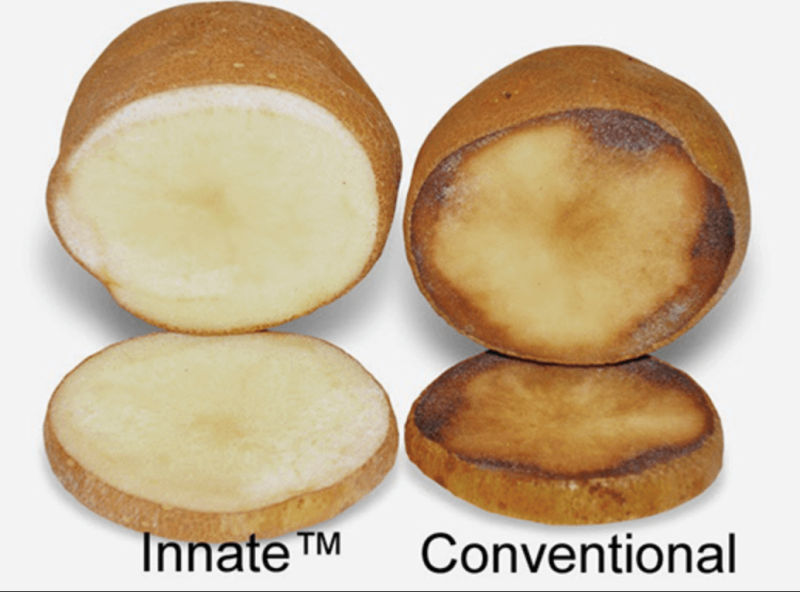[Editor’s note: This journal article is written by Godelieve Gheysenat, molecular geneticist, Ghent University in Belgium, and René Custers, regulatory and responsible research manager, VIB Flemish Institute of Biotechnology in Ghent, Belgium.]
The EU regulation on organic farming does not allow the use of genetically modified organisms (GMOs)…
[W]hy obstruct a cisgenic potato crop that can hardly be distinguished from a potato crop that is the result of conventional breeding? [O]ur knowledge of plant genome evolution and breeding has increased dramatically. We now know that breeding is more unpredictable and causes more genome disruption than genetic engineering.Recent field trials have shown the efficacy of cisgenic late blight–resistant potatoes carrying multiple resistance genes. Large-scale growing of such durably resistant potatoes would not only be environmentally beneficial by … strongly reducing the need for fungicide sprays in conventional potato cultivation … it would also reduce the disease pressure in organic potato cultivation.
Novel crop varieties should be subject to a case-by-case risk assessment independent of the method used for their development as there is no scientific basis for making a distinction between conventional breeding versus more modern techniques to create additional genetic variation. Many current and future GM plants can also not be distinguished from plants obtained by traditional breeding methods. Acceptance of plants resulting from these modern techniques in organic agriculture will probably be a bridge too far. However, in cases where the end product does not differ in a meaningful way from what can be achieved using traditional breeding methods, opposition by the organic movement to their use in conventional agriculture is difficult to understand, especially in those cases where they could help achieve true resilience in plants and help farmers to obtain a good healthy harvest without chemicals and maintaining a healthy soil, in line with many of the principles of organic farming.
The GLP aggregated and excerpted this blog/article to reflect the diversity of news, opinion, and analysis. Read full, original post: Why Organic Farming Should Embrace Co-Existence with Cisgenic Late Blight–Resistant Potato































